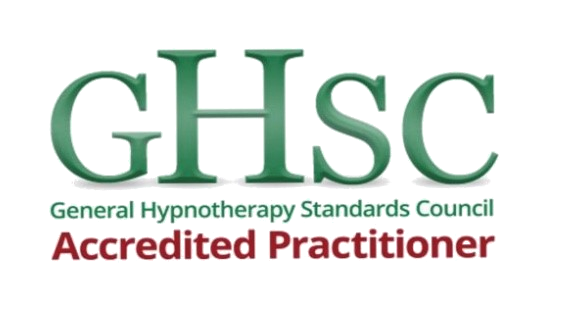CBT Treatment for Personality Disorders – in London, across the UK and Online Via Video link
We provide a specialist form of Cognitive Behavioural Therapy known as Dialectical Behaviour Therapy (DBT) for Personality Disorders from our clinics across the UK. You can also organise DBT, ACT and mainstream CBT for Borderline Personality Disorder with one of therapists operating online via video link. Dialectical Behaviour Therapy is the recommended treatment of choice for BPD and the published evidence shows that it is more effective than other forms of therapy or medication. To talk to a CBT expert about psychological treatment for a personality disorder, call 01732 808626 or email info@thinkcbt.com
What are Personality Disorders?
Personality Disorders are deeply rooted and enduring characteristics of personality that cause significant impairment in the individual’s personal, work and social life. They have a pathological or compulsive presentation and if untreated, can cause significant disruption to the individual’s self-identity and relationships with others. It’s rare that the personality disorder itself is the Initial reason for treatment, however they often lead to other psychological problems or excessive behaviours that trigger a psychological or medical referral. This can include anxiety and depressed mood. extreme mood swings, disrupive or Impulsive reactions, eccentric or odd behaviour and self-harm.
Although personality disorders are presented as diagnostic categories, it is important to recognise that they have been defined through historical observation rather than as a result of rigorous studies or scientific research. This means that the definitions tend to overlap with different personality disorder factors and with other mental health problems. The term “Personality Disorder” itself has provoked significant disagreement within the fields of psychiatry and psychology and is often seen as unhelpful and pejorative language to describe deeply distressing patterns of behaviour. From an evidence based treatment perspective, we tend to view personality disorders as broad classifications of behaviour that can be helpful indicators for identifying and targeting specific psychological treatments.
How Personality Disorders are Clustered
Personality disorders are broadly defined under three headings or clusters. Cluster A includes Paranoid, Schizoid and Schizotypal personality disorders; Cluster B includes Antisocial, Borderline, Histrionic and Narcissistic Personality Disorders; Cluster C includes Avoidant, Dependent and Obsessive Compulsive Personality Disorders.
The three clusters and ten categories are outlined under the following drop-down menus.
{slider Cluster A - Paranoid Schizoid and Schizotypal Personality Disorders|closed|blue}
Paranoid Personality Disorder
Paranoid personality disorder involves a pervasive level of mistrust and a preoccupation with conspiracies and negative assumptions about the motives of other people. This causes high levels of suspicion, highly guarded and hypervigilant behaviour, covert checking and searching for evidence to validate suspicions and predictions. This behaviour has a negative impact on key relationships and can lead to bitterness, vindictive behaviour, withdrawal and isolation from others.
Schizoid Personality Disorder
Schizoid individuals are prone to periods of introspection and act in a withdrawn and aloof manner. There is and absence of closeness or intimacy, an indifference to social or interpersonal contact and an apparent absence of emotional sensitivity. Schizoid individuals often present as emotionally detached, cold, insular, logical and with little interest in the external world.
Schizotypal Personality Disorder
This presents as idiosyncratic aspects of appearance, speech or behaviour. It can include unusual perceptual experiences, superstitious beliefs, magical thinking and a suspicious fear of other people. Schizotypal personality disorder can lead to “ideas of reference”; a belief that situations and events are somehow magically connected to the individual. This problem was previously known as Latent Schizophrenia due to its detached and delusional aspects and is often associated with the development of full Schizophrenia.
{/sliders}
{slider Cluster B Antisocial, Borderline, Histrionic and Narcissistic Personality Disorders|closed|green}
Antisocial Personality Disorder
antisocial personality disorder involves impulsive, aggressive, callous and socially unacceptable behaviour. The individual has a disregard for rules and social norms and lacks personal control. This can often present as superficially charming and charismatic; however, relationships are usually turbulent and short-lived. This problem is often associated with criminal behaviour and individuals tend to repeat the same problems without learning from past experience.
Borderline Personality Disorder
borderline personality disorder is often referred to as Emotionally Unstable Personality Disorder. it is characterised by high levels of emotional sensitivity, emotional outbursts, difficulty regulating emotional and behavioural reactions and a tendency to shift from intense emotional involvement to rejection and instability. This often involves porous emotional and physical boundaries, inappropriate levels of personal disclosure, angry outbursts, acts of physical violence and self-harm. Borderline sufferers essentially lack clear sense of identity, a need for recognition or validation and an associated fear of abandonment. This maintains a vicious cycle of intense emotional need, high rejection sensitivity and dysregulated emotional reactions. Borderline PD is usually identified through high levels of anxiety, depressed mood and self-harm. This problem has been associated with early sexual abuse and past trauma and tends to be diagnosed more frequently in young Women.
Histrionic Personality Disorder
Histrionic personality disorder involves a pathological need to attract the attention and approval of other people in order to experience self-worth. This can lead to excessive focus on appearance, overtly charming or attentive behaviour and a tendency to dramatize or sensationalise their experiences. Behaviour can be seen as attention-seeking and superficial, leading to difficulty in forming and maintaining close relationships. Histrionic Personality Disorder also involves a high sensitivity to implied criticism or failure. This intensifies attention seeking behaviour. a vicious cycle is created in which the individual craves approval to compensate for perceived failure or rejection. This impulsive need for attention and approval can lead to exploitation and vulnerability.
Narcissistic Personality Disorder
This presents as a high level of self-importance, a strong sense of self-entitlement, a need to be admired, unhealthy envy of others and a lack of genuine empathy. Individuals with NPD appear self-absorbed, highly controlling, insensitive and selfish. Where personal demands are not met, this can lead to rage, revenge and vindictive behaviour to punish the other person.
{/sliders}
{slider Cluster C – Avoidant, Dependent and Obsessive Compulsive Personality Disorders|closed|red}
Avoidant Personality Disorder
This involves avoidance of any situation where the individual feels under scrutiny or out of control. Avoiding includes meeting with other people and limiting commitments in existing personal relationships. This behaviour is deeply rooted in beliefs about inferiority and social ineptitude. The fear of being judged, embarrassed or exposed as unwanted, unappealing or worthless. maintains avoidance and emotional isolation. A tendency to monitor and control internal feelings and bodily sensations, contributes to an insular and detached appearance.
Dependent Personality Disorder
dependent personality disorder is characterised by a High level of reliance on other people to make simple decisions and to provide security, protection or safety. Important judgements and life decisions are deferred to trusted others and High levels of dependency maintain deeply rooted beliefs about inadequacy, vulnerability and weakness. Behaviour is deferential and ingratiating and all efforts are made to avoid rejection or abandonment. This intense level of dependent behaviour can be stifling for others and in some circumstances places the individual at risk of exploitation and control.
Obsessive Compulsive Personality Disorder;
obsessive-compulsive personality disorder involves an excessive and perfectionistic focus on rules, lists, details, sequences, precision, symmetry and order. This focus is so intense that it profoundly interferes with the individual’s ability to function in their home, work or personal lives. The need to maintain control or order becomes so preoccupying that it can prevent or significantly delay simple tasks. Completing work routines to the required level is prioritised over personal or emotional needs and behaviour can be highly cautious, rigid, controlling and critical. Anxiety is maintained by unpredictability and complexity, which increases the intensity of behaviours and the need for increased perfection and control. OCPD relates to a strong desire or absolute need for symmetry, perfectionism or control. This is different to OCD which is an anxiety avoidance related problem.
{/sliders}
How are Personality Disorders Treated Using CBT?
The most effective form of Cognitive Behavioural Therapy for Personality Disorders is Dialectical Behaviour Therapy (DBT). This has been used to effectively treat Borderline Personality Disorder, however other forms of CBT and Mentalisation training have been used to improve functioning across other personality disorder categories.
How Borderline Personality Disorder is Treated
Borderline Personality Disorder is treated using a special form of CBT known as Dialectical Behaviour Therapy or DBT. This therapy model was specifically developed to treat individuals experiencing emotional turbulence and brings together the three therapeutic strategies of validation, acceptance and challenge. Clients are supported to understand the problem, to accept rather than struggle with their emotions and to challenge unhelpful or unwanted behaviour. DBT helps the client to flexibly apply the three strategies of validation, acceptance and challenge to effectively regulate emotional sensitivity, reactivity and recovery from high emotional states. As emotional intensity and turbulence tends to affect friendships, family and romantic relationships, DBT specifically focuses on how this is achieved through managing interpersonal behaviours.
At Think CBT we provide tailored DBT which generally involves weekly 50/60 minute sessions with follow-up phone calls to check on progress. DBT sessions focus on the following areas:
-
Problems that have arisen since the previous session with particular emphasis on suicidal and self-harm risks.
-
Problem solving skills to encourage a shift from emotional reactions to realistic and helpful responses.
-
Interpersonal Effectiveness training to improve the management of key relationships.
-
Distress tolerance skills to moderate emotional sensitivity levels.
-
Emotional regulation skills to moderate reactivity and improve emotional balance.
-
Mindfulness skills to improve attention and psychological flexibility.
You can find out more about how DBT works by visiting our Dialectical Behaviour Therapy page. DBT is a highly structured form of Cognitive Behavioural Therapy and should only be delivered by a qualified CBT expert with specialist training in DBT. To talk to a member of the therapy team about the DBT process and commitment, call 01732 808626 or email info@thinkcbt.com to organise a free telephone consultation.

















































